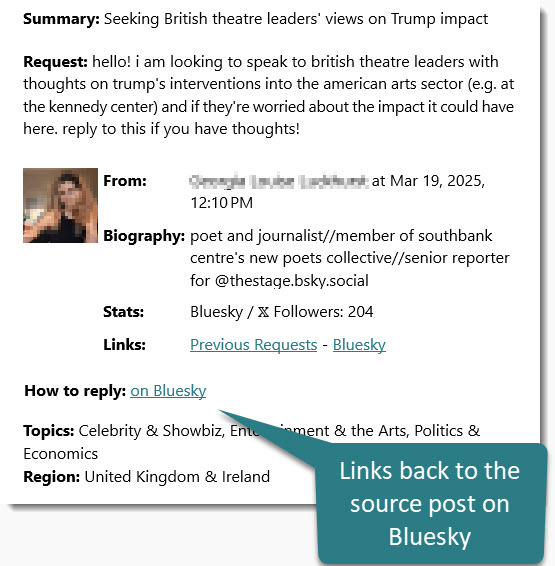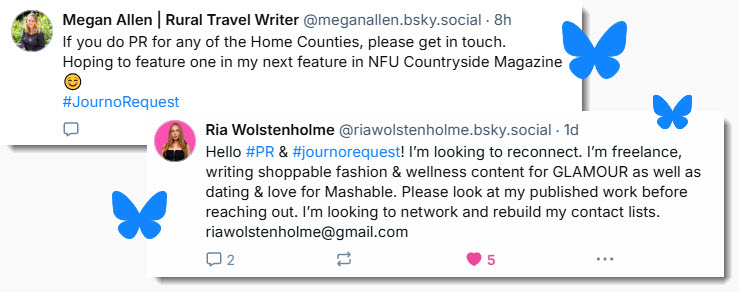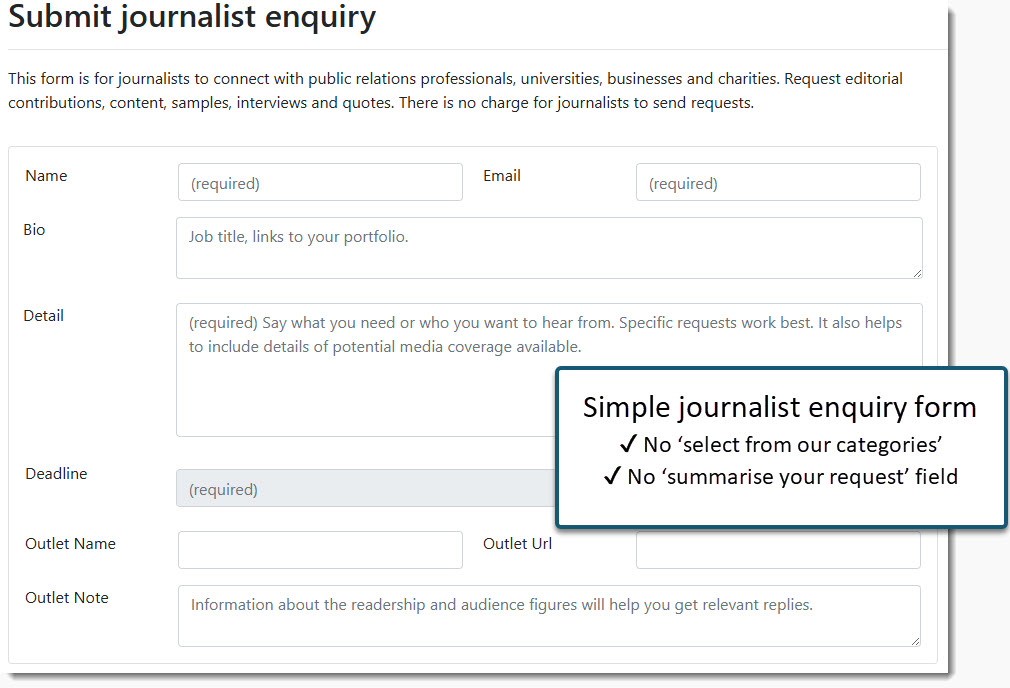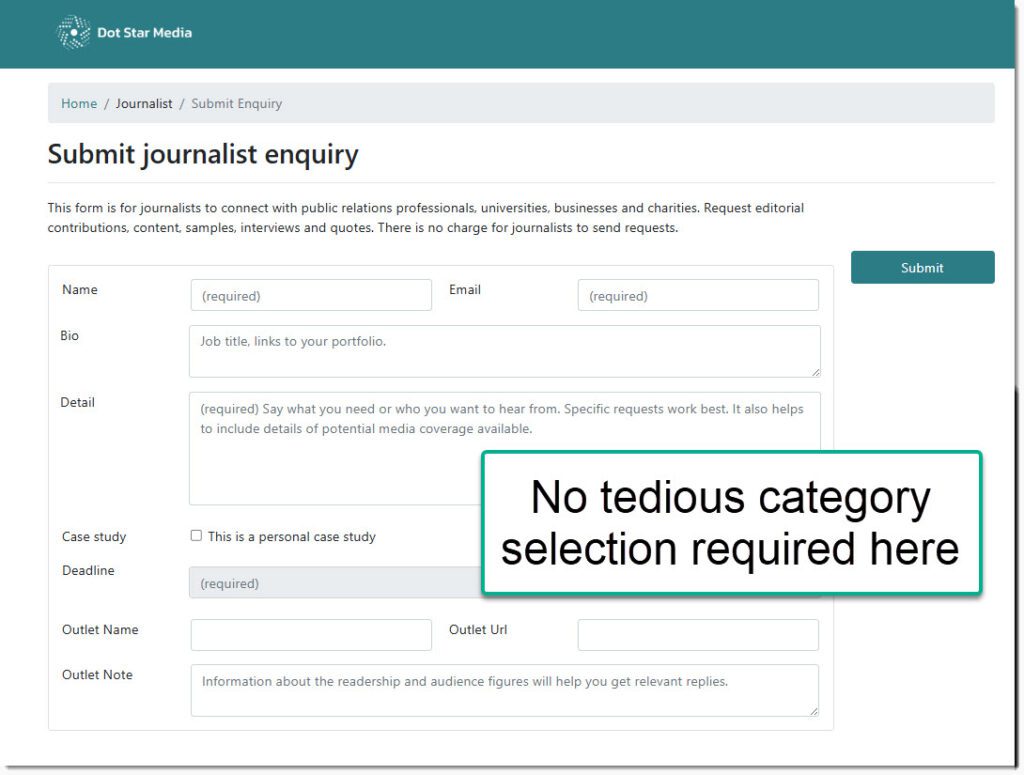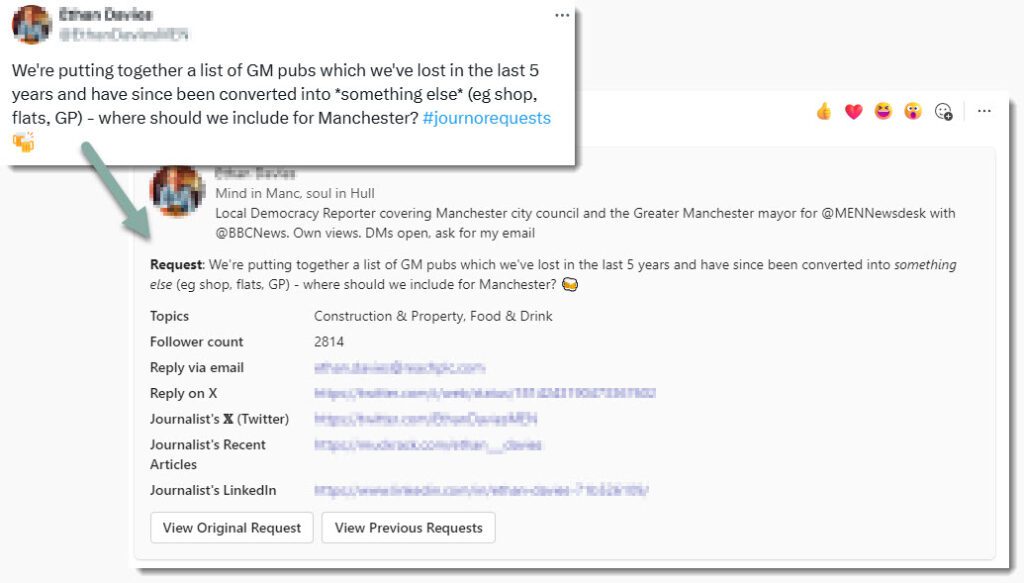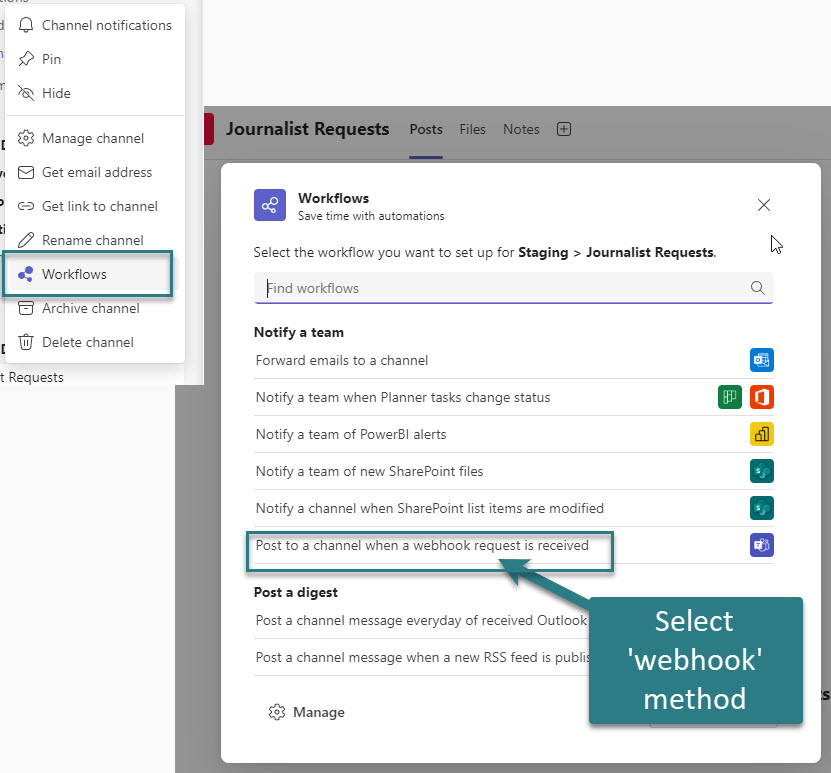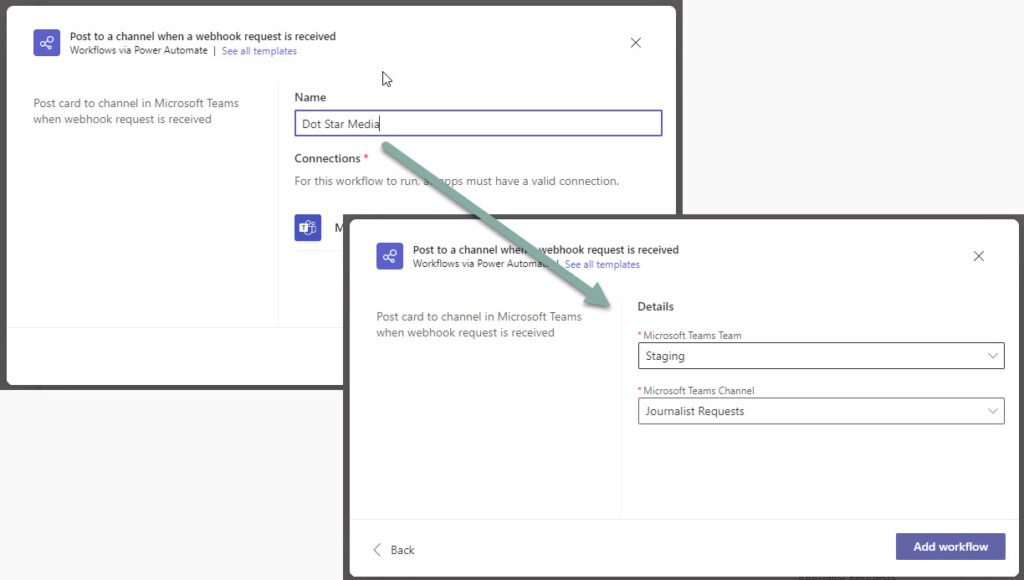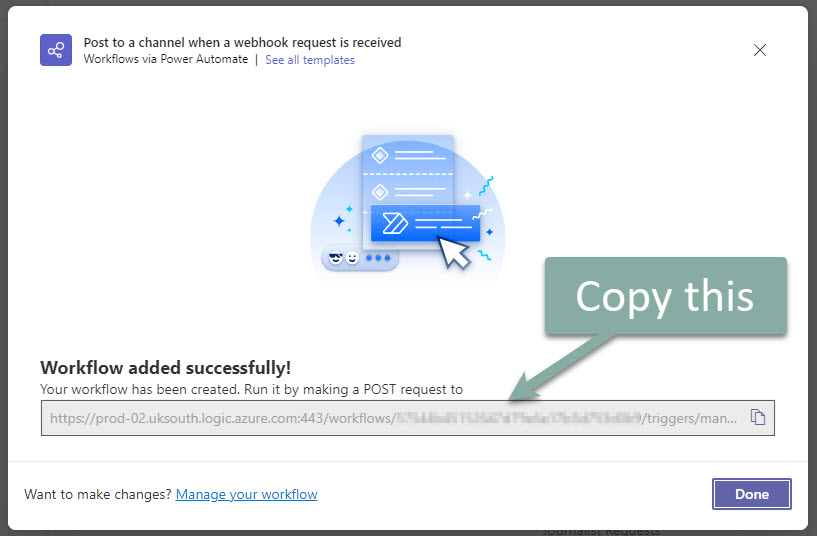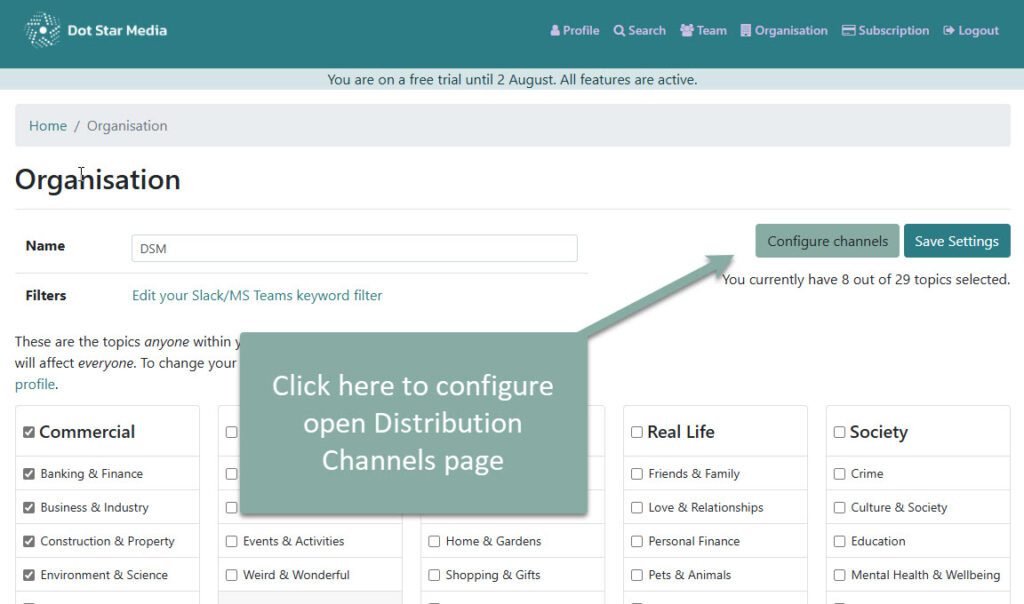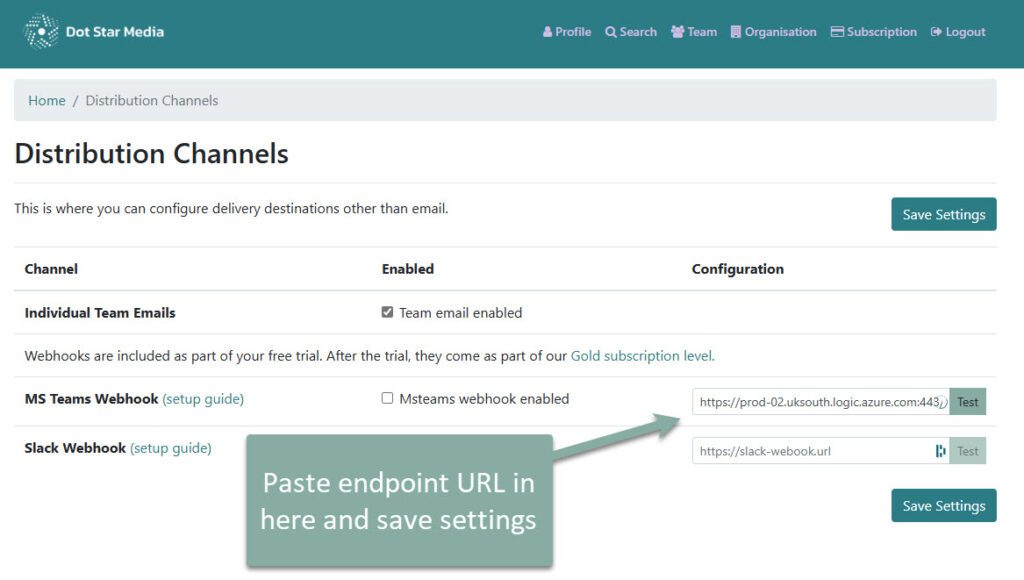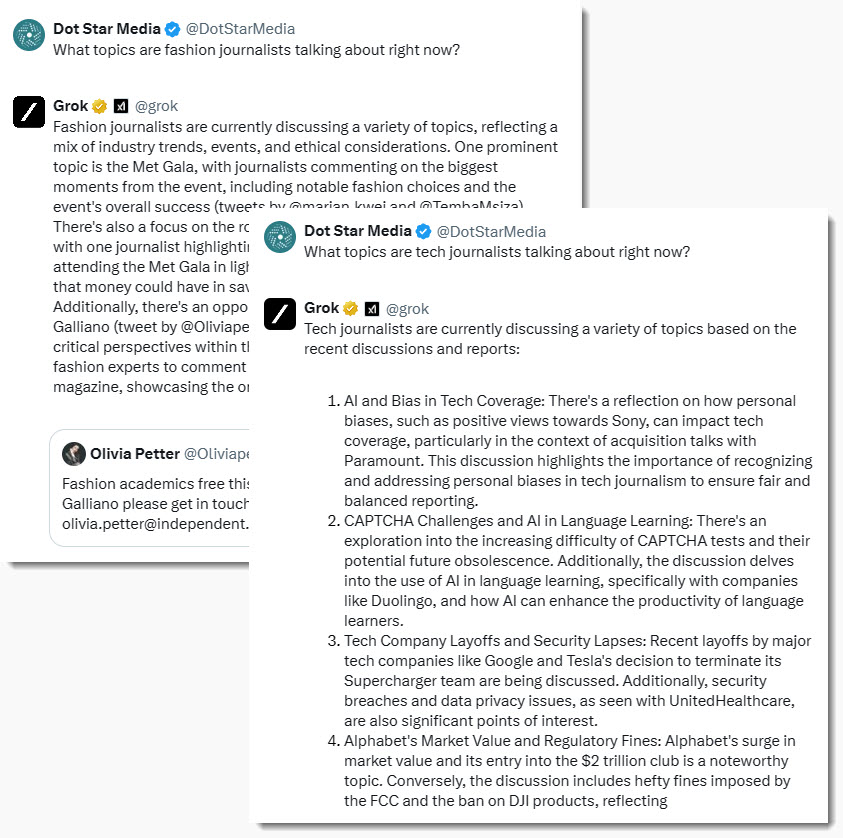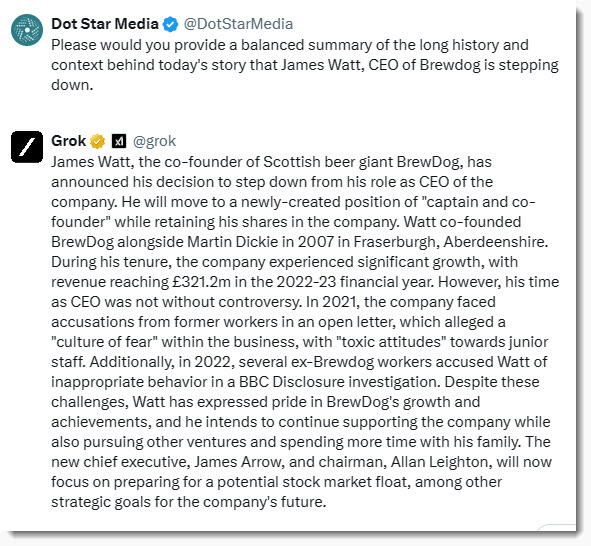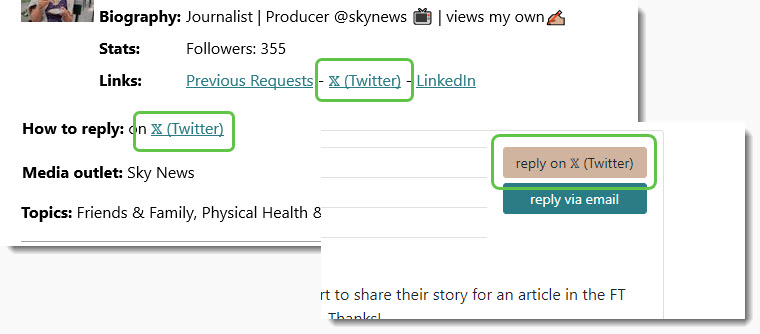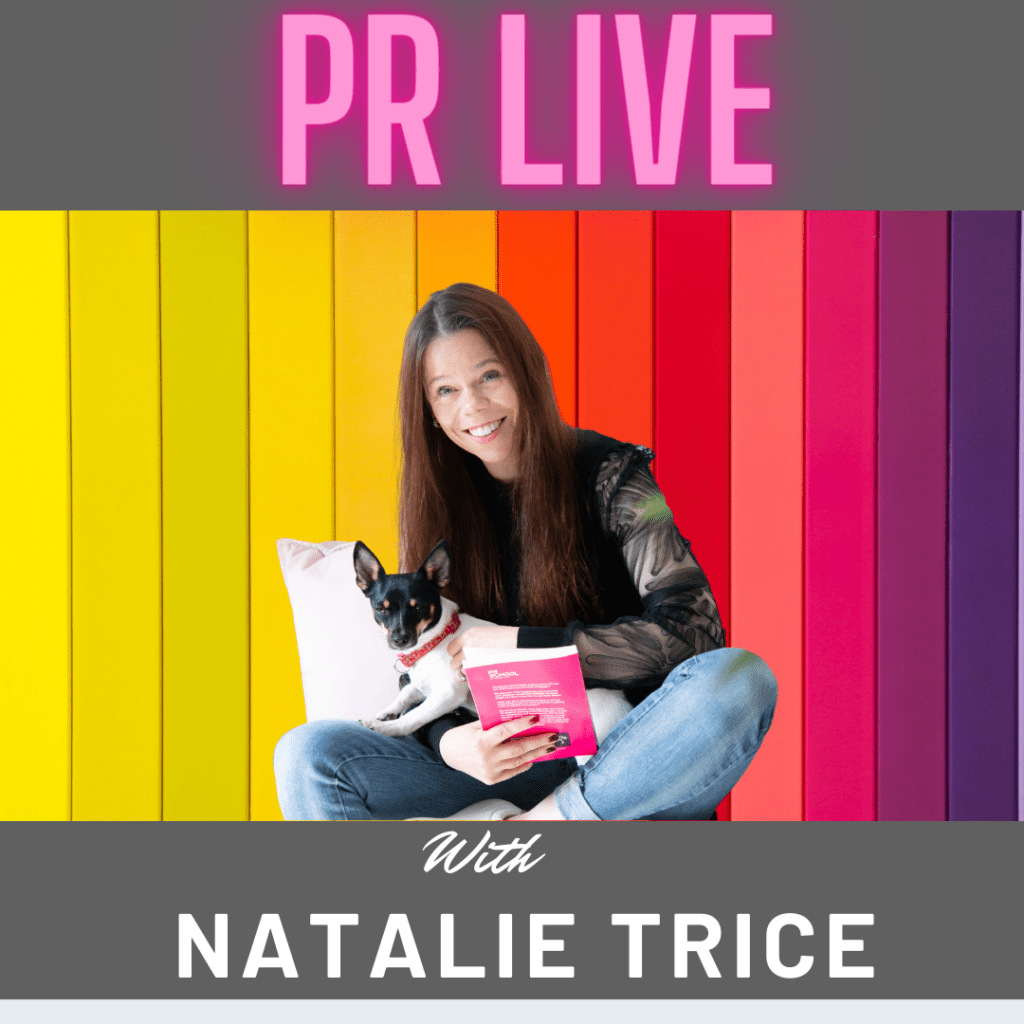We’ve fully integrated Bluesky monitoring to the Dot Star Media platform. Customers receive alerts for journo requests posted with the #journorequest tag on Bluesky alongside alerts for requests on Twitter/X.
While Bluesky doesn’t yet rival Twitter/X for volume, it’s growing and sometimes journalists share opportunities only on Bluesky. That means PR professionals relying solely on Twitter/X may miss out.
Of course, the hashtag has its fair share of noise. Our system filters out non-journalist posts, de-duplicates cross-posts from Twitter/X, and delivers only genuine media opportunities from journalists working on commissioned editorial.
You can monitor #journorequest on Bluesky manually, if you prefer. One way to do this is with our curated feed on Bluesky. This removes some of the clutter: 👉 Bluesky #journorequest feed
Another way to monitor journo requests on Bluesky is with an automation tool such as Zapier. This may require a subscription especially if you want to built a multi-step process with filters to weed out noise.
The Dot Star Media journalist request service is free to try out 👉 Start a free two-week trial
Here’s an example of an email alert for a Bluesky #journorequest post
